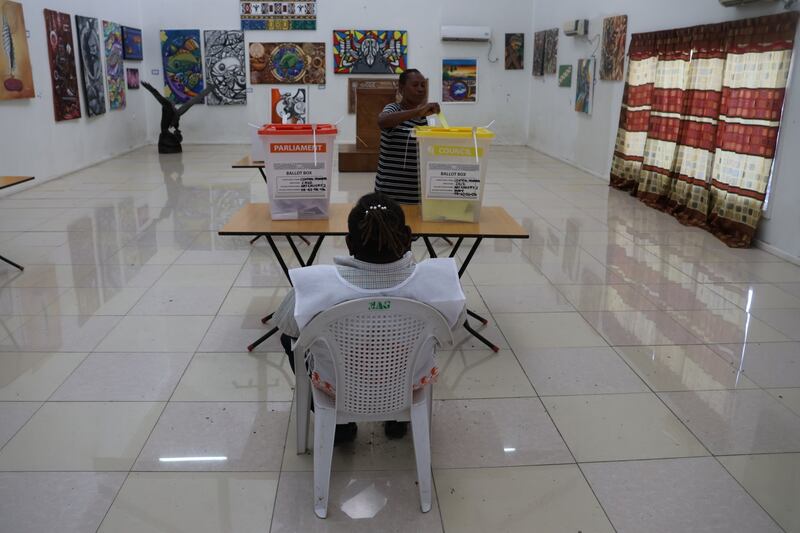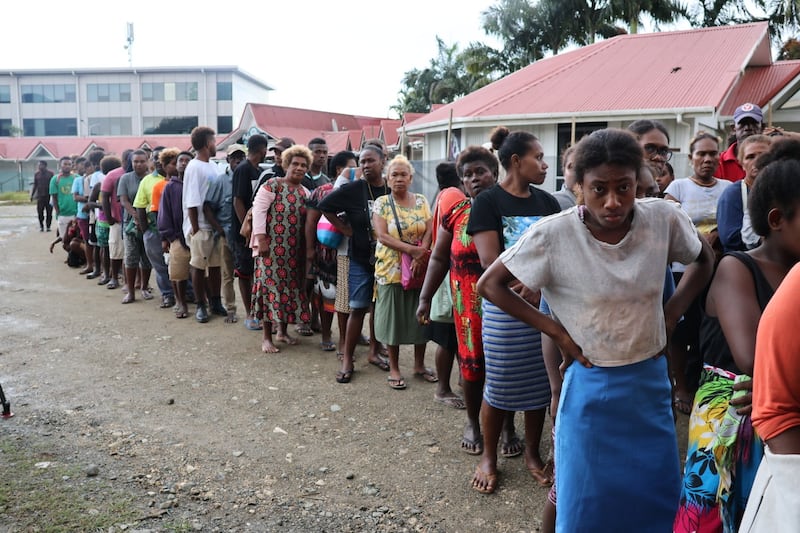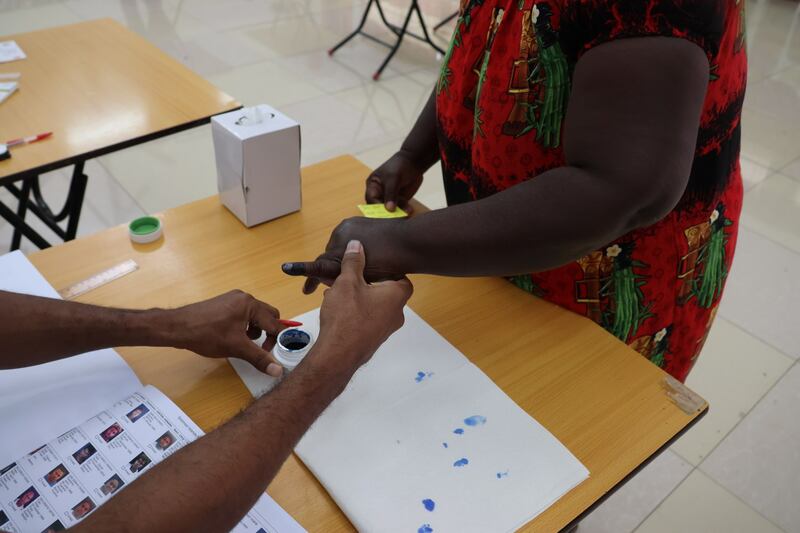Solomon Islanders queued to vote in the rain and under a boiling sun, undeterred by fickle weather on election day and optimistic their voices will matter in the economically-lagging nation where China and the United States are in a sharp-elbowed contest for influence.
Queues had already formed at polling stations in the capital Honiara before they opened at 7 a.m on Wednesday. The chairwoman of the Electoral Commission, Taeasi Sanga, declared voting underway in a livestreamed broadcast and urged calm in the sometimes volatile Pacific island nation that was jolted by riots as recently as 2021.
“Members of Parliament must think of the people because they start from the people. They must take on board the concerns of the people. That is very important, that is why I am voting today,” said Annie Punufimana, a retired nurse, who waited in a queue of hundreds to cast her vote in the capital.
As the country of 700,000 people holds both national and provincial elections, the central government's ineffectiveness in providing basic services and the struggle to earn enough money to survive was preoccupying many voters.
Whether Prime Minister Manasseh Sogavare will stay in power is also keenly watched by governments from China to Australia and the U.S. The election is the first since the combative pro-Beijing leader switched diplomatic recognition to China from Taiwan in 2019, signed a secretive security pact with the Asian superpower and allowed Chinese police into the country.

The election was due to be held in 2023 but was delayed, ostensibly, because the Solomon Islands couldn’t afford to hold it in the same year it was hosting the 24-nation Pacific Games that was largely bankrolled by China.
“I think leadership of this country is the pressing issue at this time,” said Eddie Toifai, a lawyer.
“There are a whole lot of issues. I’m looking at the broader issues, the bigger ones such as the economy, law and order,” he told BenarNews, sheltering under an umbrella while waiting to enter a polling station.
“I’m really looking forward to some change, if the leadership of this country can change for the better.”
The Solomon Islands Electoral Commission at a briefing on Tuesday said vote counting may not be completed until late this month. In most cases, provincial results are likely to be known before national constituency results, it said. Members of Parliament decide the prime minister, so leadership of the Solomon Islands may not be known until May.
Only 20 of the 334 candidates in the elections are women, according to the electoral commission, compared with 26 in the 2019 election, while the total number of candidates is almost the same.
Regional implications
For many observers, the election is the most consequential for the country in half a century since independence and a referendum on Sogavare's embrace of China, which has been rewarded with showcase sporting facilities for the Pacific Games and funding for members of Parliament but sparked anti-China riots in 2021.

Despite bristling for decades with foreign aid projects, the Solomon Islands has struggled to prosper. It has been beset by corruption and ethnic tensions that in 2003 sparked a years-long Australian military intervention.
China’s emergence as an economic and diplomatic power presented an alternative to reliance on Australia that Sogavare seized upon.
Even so, it is police and troops from Australia, Papua New Guinea, Fiji and New Zealand that have descended on the Solomon Islands to provide security during the election, rather than China.
Nearly 400 independent observers are monitoring the election including local civil society groups, a joint team from universities in Australia and the Solomon Islands and regional organizations such as the Melanesian Spearhead Group and the Pacific Islands Forum.
At the electoral commission briefing, an official said that reporters from China’s state news agency Xinhua had been filming in the capital ahead of the election, but hadn’t registered with the commission for passes that would allow them to enter polling stations or use its media and results center.
Better schools, healthcare
Most of the day-to-day concerns of Solomon Islanders are far removed from the intensifying China-U.S. competition for influence in the Pacific.
Barely drivable roads are a top complaint on Guadalcanal where the capital is located and other islands. Poor health care including shortages of even over-the-counter painkiller Panadol, rising prices for necessities such as rice, which are sold at mostly Chinese-owned shops, and lack of jobs for a burgeoning youth population are other frustrations.

“I’m just hoping for change like [better] schools for our children,” said Punufimana. “I’m a nurse, now I’m retired, but what I see now is we don’t have medicines like we used to.”
“Yes the population is increasing but members [of Parliament] need to plan. When I go to the clinic as a patient I see there are no drugs.”
A campaign blackout was in place the day before the election and alcohol sales are largely prohibited until April 26.
The final day of campaigning on Monday attracted thousands onto Honiara’s dusty, potholed main road for noisy and colorful parades – supporters of various candidates piled onto trucks and some stood atop moving cars, sounded air horns and danced in the street.
Honiara’s port was inundated with crowds in the past week as many people in Guadalcanal flocked to get on vessels to other islands where they are registered to vote.
“Election day is only meant to cater for the people of the Solomon Islands,” said Eddie Luma, as he waited to vote. “Because some of them [members of Parliament] only fight for themselves. Therefore, we people in the Solomon Islands try to bring in somebody to bring good law.”
BenarNews is an RFA-affiliated online news organization.
